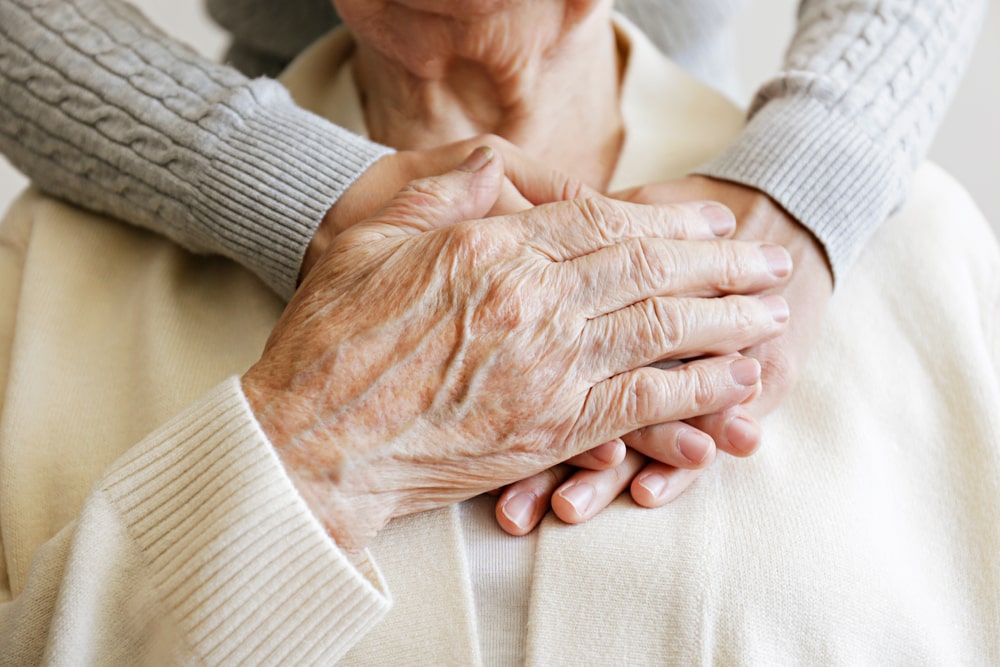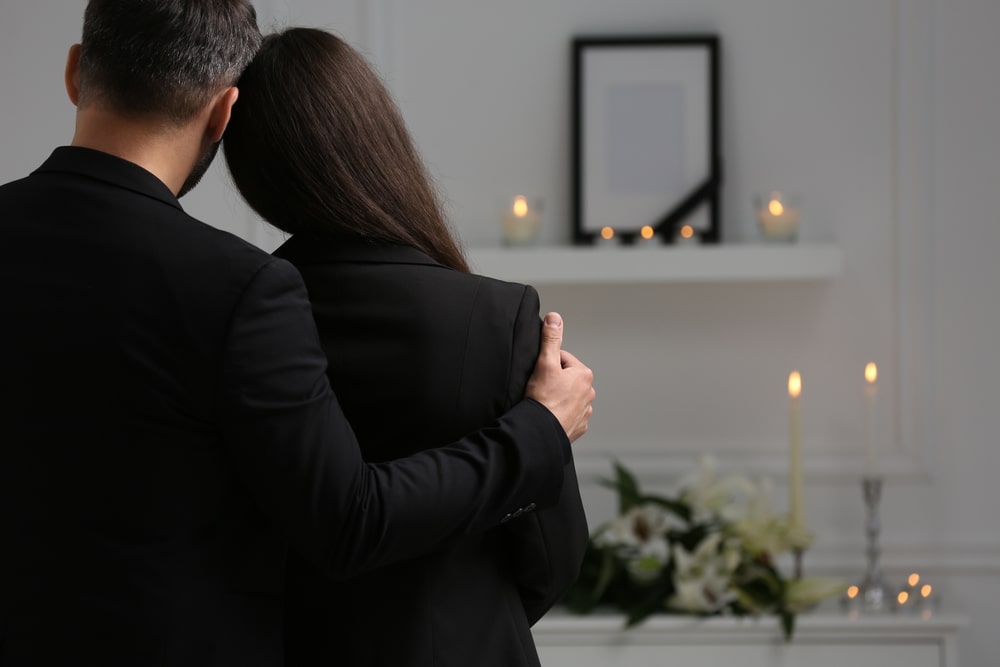Today, we live fast-paced lives focused on instant gratification, immediate responses, and constant stimulation. We fill our minds with a barrage of entertainment and distract ourselves with our devices. In such an environment, moments of silence are increasingly rare, and may even feel uncomfortable.
For many, having a funeral and honoring the sacred space of mourning feels foreign or inconvenient. We resist the idea of slowing down because if we slow down, we risk thinking about our own mortality, something we desperately wish to avoid. But despite our best efforts to minimize its impact, the funeral does matter. Let’s talk about why.
4 Reasons Why a Funeral Matters
1. A funeral encourages us to respect the beauty of life
No matter how much we want to hide from it, avoid it, or try to get around it, death isn’t convenient. It’s painful. It forces us to consider the transience of life. It forces us to face our emotions. Dealing with death and loss is not supposed to be convenient or efficient. It takes time and intentionality to deal with death in a healthy way.
Going back to the earliest historical records, human beings have been using the funeral (in its various forms) to honor and remember the lives of loved ones. It doesn’t have to be extravagant or exhausting, but the service should give mourners time to reflect and grieve. With every life that is honored at its passing, we reaffirm the beauty and sanctity of life and the living.
2. A funeral brings emotions to the surface and reduces the risk of complicated grief
If grief isn’t expressed at a time of loss, it has a way of coming back around later, sometimes with a vengeance. In some cases, unresolved grief can lead to complicated grief or even depression. Both of these mental health concerns are serious and require the assistance of a licensed mental health professional to overcome.
While ignoring grief may save you from short-term pain, it’s harmful in the end. Dr. Alan Wolfelt, a nationally respected grief educator and counselor, says:
“The pain of grief will keep trying to get your attention until you unleash your courage to gently, and in small doses, open to its presence. The alternative—denying or suppressing your pain—is in fact more painful. If you do not honor your grief by acknowledging it, it will accumulate and fester. So, you must ask yourself, ‘How will I host this loss? What do I intend to do with this pain? Will I befriend it, or will I make it my enemy?’”
By attending a funeral, memorial, or some type of service following the death of a loved one, you give yourself and other mourners a chance to release what’s pent up inside. When grief is allowed to be expressed in its proper time, complications tend to be reduced or alleviated.
3. A funeral provides the opportunity to say goodbye
In addition to reminding us about the sanctity of life and encouraging us to express ourselves, the funeral matters because it provides an opportunity to say goodbye. As human beings, we need some form of closure – some way to say goodbye and “I love you, I miss you” to those we have loved and lost.
The funeral provides an avenue for both family and friends to have that final opportunity to say what needs to be said, to see that special person’s face one more time, and to close the door on a beautiful chapter of life as they turn the page to see what the future holds. We all need to say goodbye, so we can face the challenges and changes of tomorrow.
4. A funeral honors a loved one’s life and says they matter
And lastly, the funeral matters because your loved one’s life matters. Whether you do something simple or something elaborate, take time to celebrate who your loved one was. What did they enjoy doing? What were their lovable quirks? What did they mean to you? What are your favorite memories?
By adding customized stories and details to a final tribute, you get to say goodbye to them in a truly personal way. It’s not a hollow or meaningless service. It’s full of love, appreciation, remembrance, and a focus on the value your loved one brought to the world.
What Does All This Mean?
So, what does all this mean? It means take time to slow down. Make time to mourn. You deserve the chance to express and work through your feelings. And your loved one deserves to have their life remembered and honored in a personal way.
While confronting death head-on can feel uncomfortable, respecting the dead makes us stronger people. We find greater resilience and the ability to navigate through the difficulties of life. At the funeral, we mourn. We come together and remember. In many ways, we forget our differences and heal old wounds. We honor sacred space and time, and we grow as individuals and as a society.
And remember, every funeral will look different. You can work with a trusted funeral professional to choose the type of service that best meets your loved one’s wishes and your family’s emotional needs. Whether that’s a formal Mass, a memorial service with cremated remains present, a graveside service, a celebration of life, or some other type of service entirely, the funeral matters because it helps you meaningfully honor, remember, and celebrate a unique person you deeply love.









